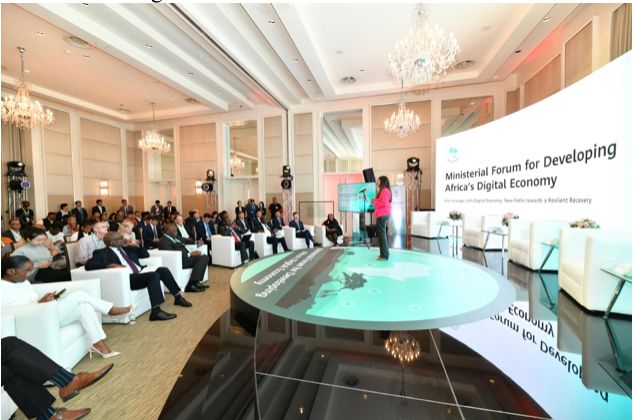By Stanley Senya
Accra, Nov. 16, GNA-Africa needs digital innovation to spill over into all segments of business and society if we are to strengthen their digital economy.
According to the World Bank, Africa required US$100 trillion to achieve full digital transformation, and no one, in the public or private sector, had the capacity to do this alone.
Mr John Omo, the General Secretary of the African Telecommunications Union (ATU) said this at the Ministerial Forum of AfricaCom 2022 bringing participants from Malawi, Namibia, Uganda, and Zambia.
A statement issued in Accra said the session focused on methods to engineer a new sense of hope for Africa’s digital economy journey.
The forum was supported by Huawei on the theme: “Rise Stronger with Digital Economy: New Paths towards a Resilient Recovery and Growth.”
He said through the power of investment and of regulation, together we can craft a framework that will give effect to the growth and development we want to see.
Mr Omo said digital transformation was the driver of inclusive economic growth, job creation, the improvement of public service delivery, and the optimisation of business services in Africa.
Mr Leo Chen, Huawei President of Sub-Saharan Africa Region emphasized the three major elements of digital transformation: digital infrastructure, digital services, and digital skills.
“If we do these three things well, we can connect the unconnected people and businesses, fully unleash digital productivity, and develop the digital economy, no matter what its definition is,” he said.
He said to achieve this, Huawei innovates to impact with local partners, to find local solutions to local problems.
He said “We are a leading global ICT company, and technology is our most important asset. We want to keep what matters the most in Africa.”
Mr Chen said that was why they have made significant investments in people and skills transfer, through training, certification, and joint innovation.
In Malawi, according to Mr Francis Bisika, Principal Secretary of e-Government, 230 000 km of fibre network had been installed across the country including to the remote rural areas.
“We are addressing the issue of connectivity, especially in rural areas, we are also bringing fibre to the home, as well as business. Once we have the connectivity, we can address the issue of digital literacy,” he said.
He said they also built a government data centre in which they were accommodating businesses and individuals request for networking and storage, making ICT facilities available to as many Malawians as possible.
Mr Percy Chinyama, Zambia’s National Coordinator of SMART Zambia Institute said the digital sector had been given authority in Zambia. “We are working to maximise the work of revenue generating departments and to reduce duplications of work and now have 240 government services online,” he said.
Mr Chris Baryomunsi, Ugandan Minister for ICT and National Guidance said, “Even as we have increased the number of tertiary education institutions, levels of unemployment remain a problem, and so we are working towards greater job creation for graduates.”
The forum closed with a joint communique where all participants agreed that the development of the digital economy is measurable.

To develop the digital economy, countries need to have in place a top-level strategy and an implementation roadmap, with clear objectives, indicators, and milestones.
They also need favourable policies to encourage investment, improve efficiency, and enable the infrastructure, skills, digital ecology, and innovation needed to grow the digital economy and create a fair business environment for all investors.
GNA